I’m not going to post what I originally had planned for today; Instead, I’m about to go down a rabbit hole – or perhaps get sucked into an astronomical black hole.
| My change in direction occurred after I saw a friend’s Instgram post of Orion, Taurus the bull, and the Pleidies. I recognized Orion immediately (who wouldn’t, amirite?), and the first thought I had was, “I wonder if Emily Dickinson ever wrote about Orion?” Isn’t that everyone’s first thought after seeing Orion in the night sky? After all, Dickinson loved science, and her poetry includes many references to geology, biology, chemistry – and astronomy too! Sooo…did Dickinson ever refer to Orion in any of her poems? **a drum roll, please** You bet your sweet bippy! If you’re not of an age to grasp the meaning of that reference, the answer is yes – Dickinson did, in fact, mention Orion in one poem – er, in two poems? |
Follow wise Orion
Till you waste your Eye –
Dazzlingly decamping
He is just as high –
That poem is NOT included in Franklin’s 1998 edition of Dickinson’s “Complete Poems.” Instead, Franklin includes this verse as #1569:
Echo has no Magistrate –
Catch a Drop of Dew
And the Sun will loose him
With a sneer at you –
Follow fine Orion till you furl your Eye –
Dazzlingly decamping
He is just as high –
As far as I can tell, the first four lines of this longer version do not appear in Johnson.
The pic below shows Dickinson’s handwritten version of these lines – and note that down the left margin of the page, she wrote “Unobtrussive blossom.”
Is this one poem? Two poems? What does it all mean?
Thoughts on this tomorrow.
Oh – by the way – in the Johnson compilation, the very next poem, #1539, is this:
Now I lay thee down to Sleep –
I pray the Lord thy Dust to keep –
And if thou live before thou wake –
I pray the Lord thy Soul to make –
I found this page, linked HERE, on “Now I lay me down to sleep,” and it doesn’t mention this version by Dickinson. #justsaying
Conveyor Belt -- Part 2
| Yesterday I got sucked into an astronomical black hole with an introduction to Dickinson’s poem “Echo has no magistrate” – or “Follow wise Orion” – depending upon if you’re reading the Johnson edition of Complete Poems or the Franklin edition. So what do we have here? One poem? Two poems? Or even a poem at all? Click the images on the right and below to enlarge. |
Well, we have a line about echoes, a few lines about a drop of dew, three (or – depending on the version – four) lines about the constellation Orion – AND – on the paper copy, an “unobtrusive blossom.” All of these things are intangible or unobtainable.
Could this simply be a list of ideas to use as images and metaphors in a future poem about ethereal items/conditions which reflect what is genuine, real, and true?
Or is this a poem about ethereal items/conditions which reflect how what is genuine, real, and true is beyond our grasp?
Of course, there’s that unused “unobtrusive blossom”? Why didn’t it maket the cut?
By the way – I checked to see if that “unobstrusive blossom” happened to make it into any other poem by Dickinson. I went to the online archive and found that the word “blossom” appears in 24 of Dickinson’s poems. Then I checked to see if the word “unobstrusive” appeared in any other those poems – and no, that is not so.
| However… I did find a correspondence to Susan Dickinson with the Johnson version of the poem (see below) – and at the top of the page: “A pear to the wise is sufficient.” Huh? I found this discussion (see the pic below) in Richard P. Honeck’s book, “A Proverb in Mind: The Cognitive Science of Proverbial Wit and Wisdom.” | To access info on Honeck's book, click HERE. |
I also found this bit of discussion (shown below) in “Wise Words: Essays on the Proverb,” edited by Wolfgand Mieder. To access info on Mieder's book, click HERE.
Finally, I found the info (show below on the left) in “Dickinson Unbound” by Alexandra Socarides – and it discusses the “pear,” Orion, the “unobtrusive blossom” – and how Dickinson “unmade the poem” by “taking the first stanza off.”
And just FYI: It turns out that the fifth chapter of Socarides’ work is entitled, “5 Methods of Unmaking: Dickinson’s Late Drafts, Scraps, and Fragments.” See below on the right.
To access info on Socarides' book, click HERE.
Hmmm…but was that first stanza added later? Franklin always used later versions of poems in his edition of “Complete Poems, and his edition has the longer poem.
Here’s what Franklin said in the intro to his compilation: “...the policy has been to choose the latest version of the entire poem, thereby giving to the poet, rather than to the editor, the ownership of change.”
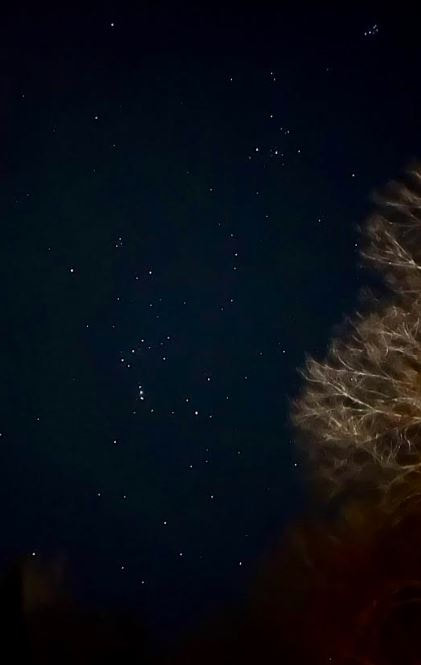
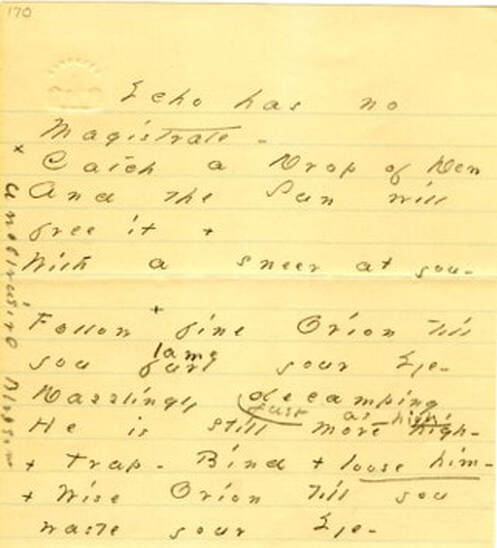
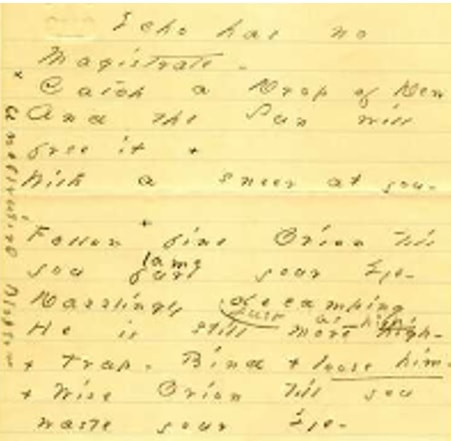
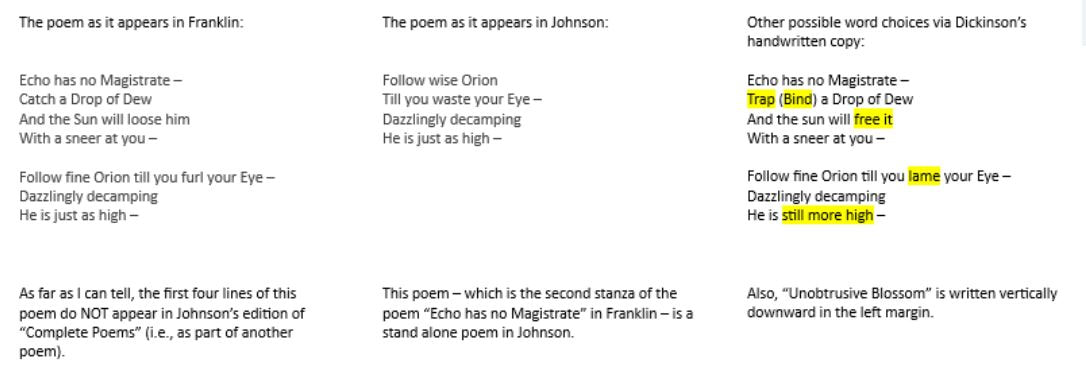
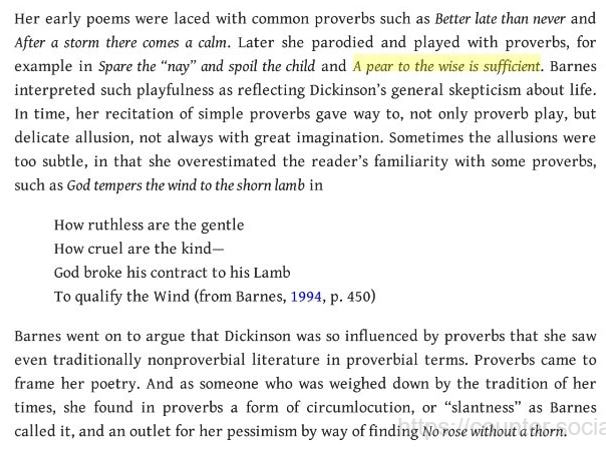
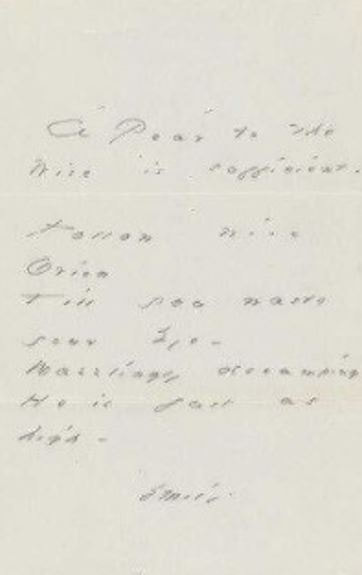

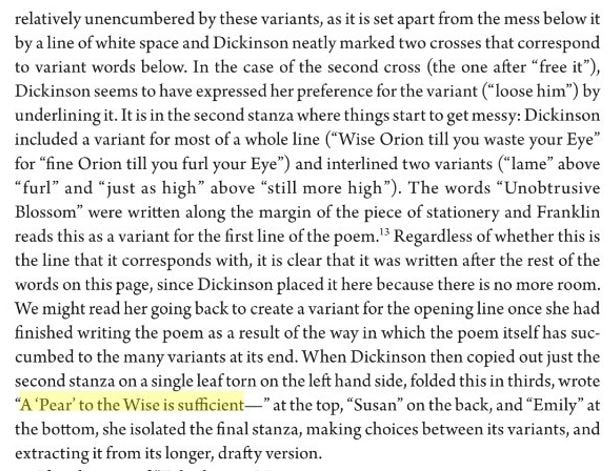
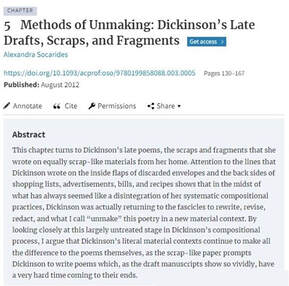
 RSS Feed
RSS Feed
